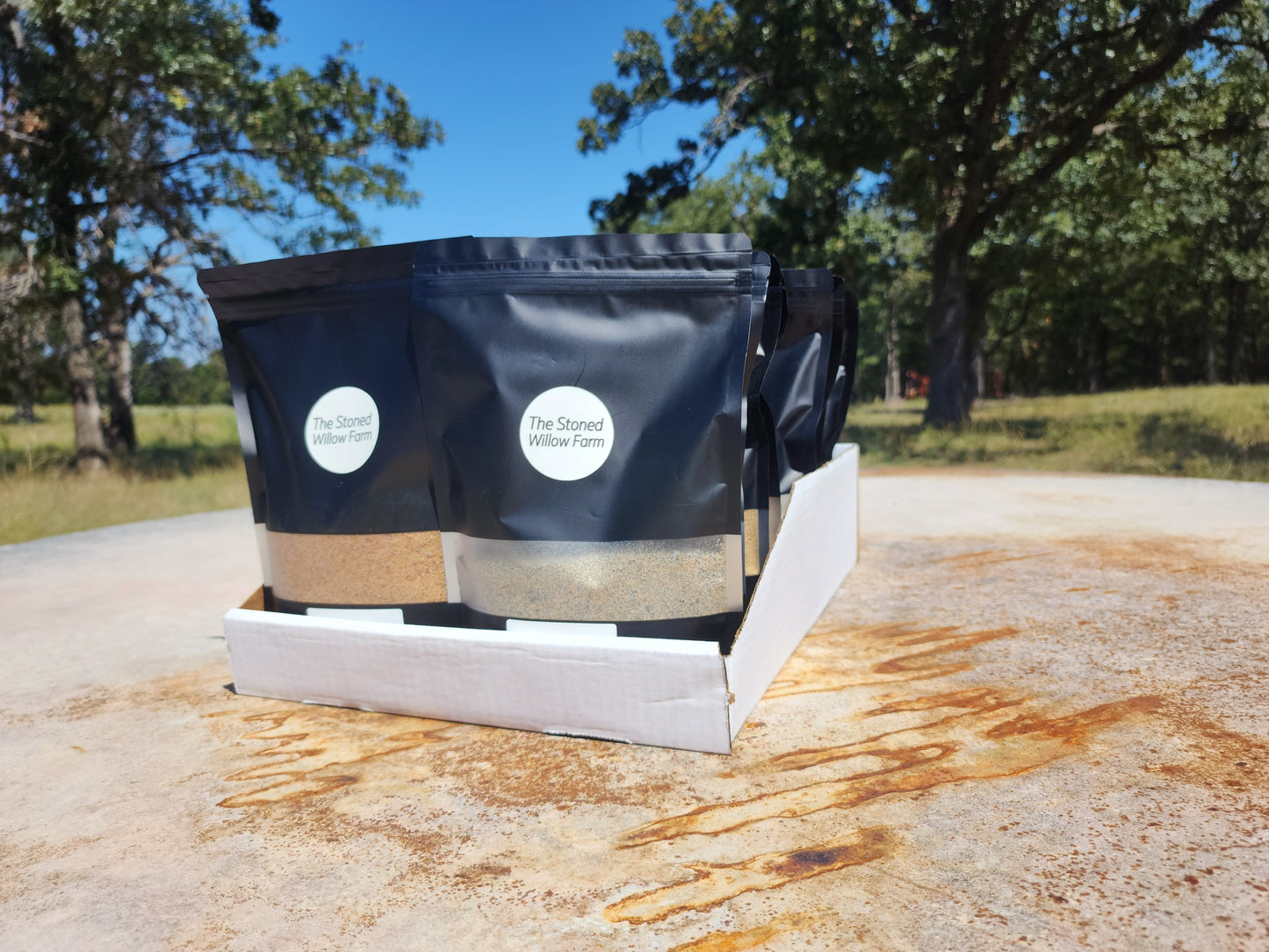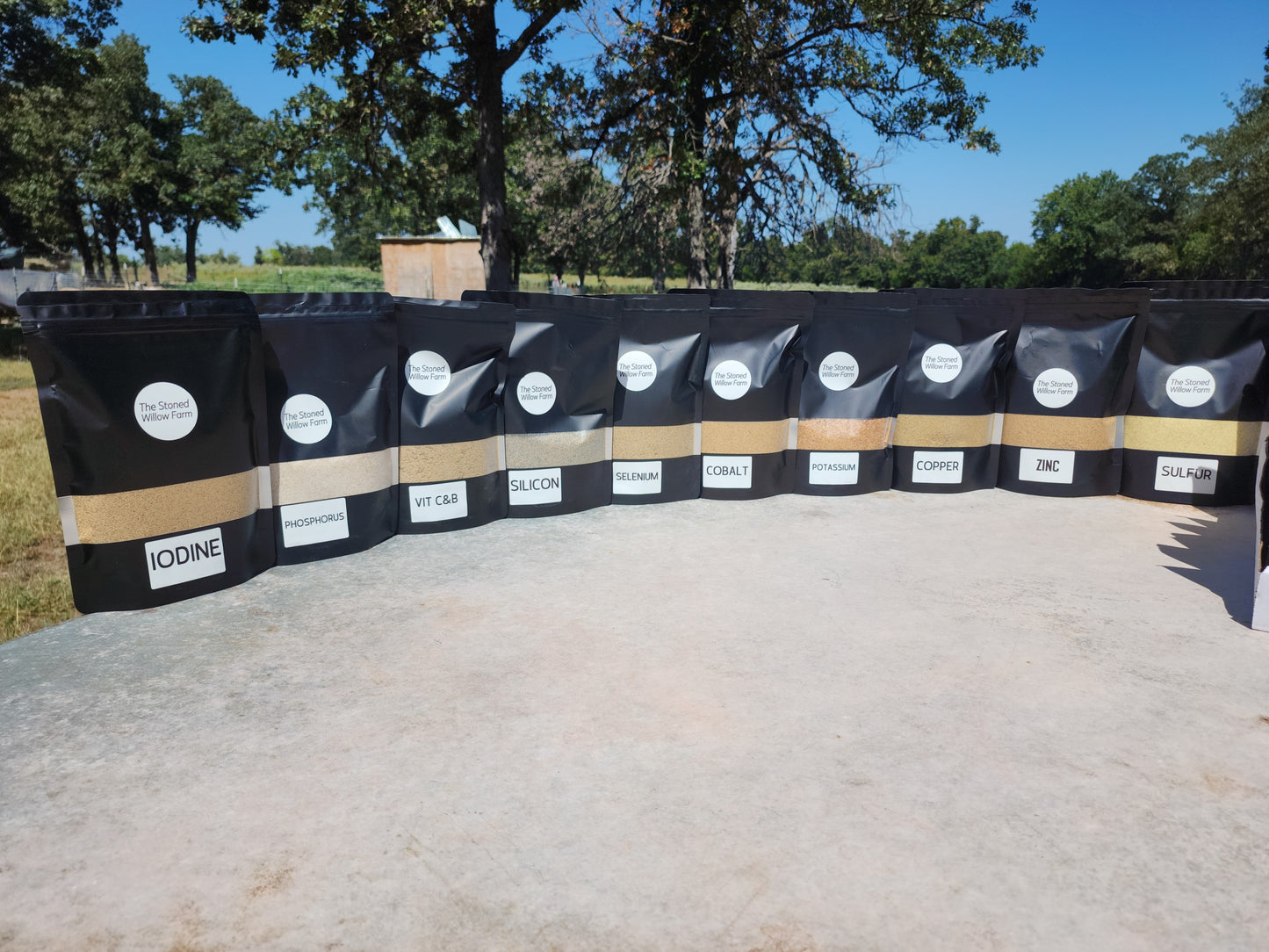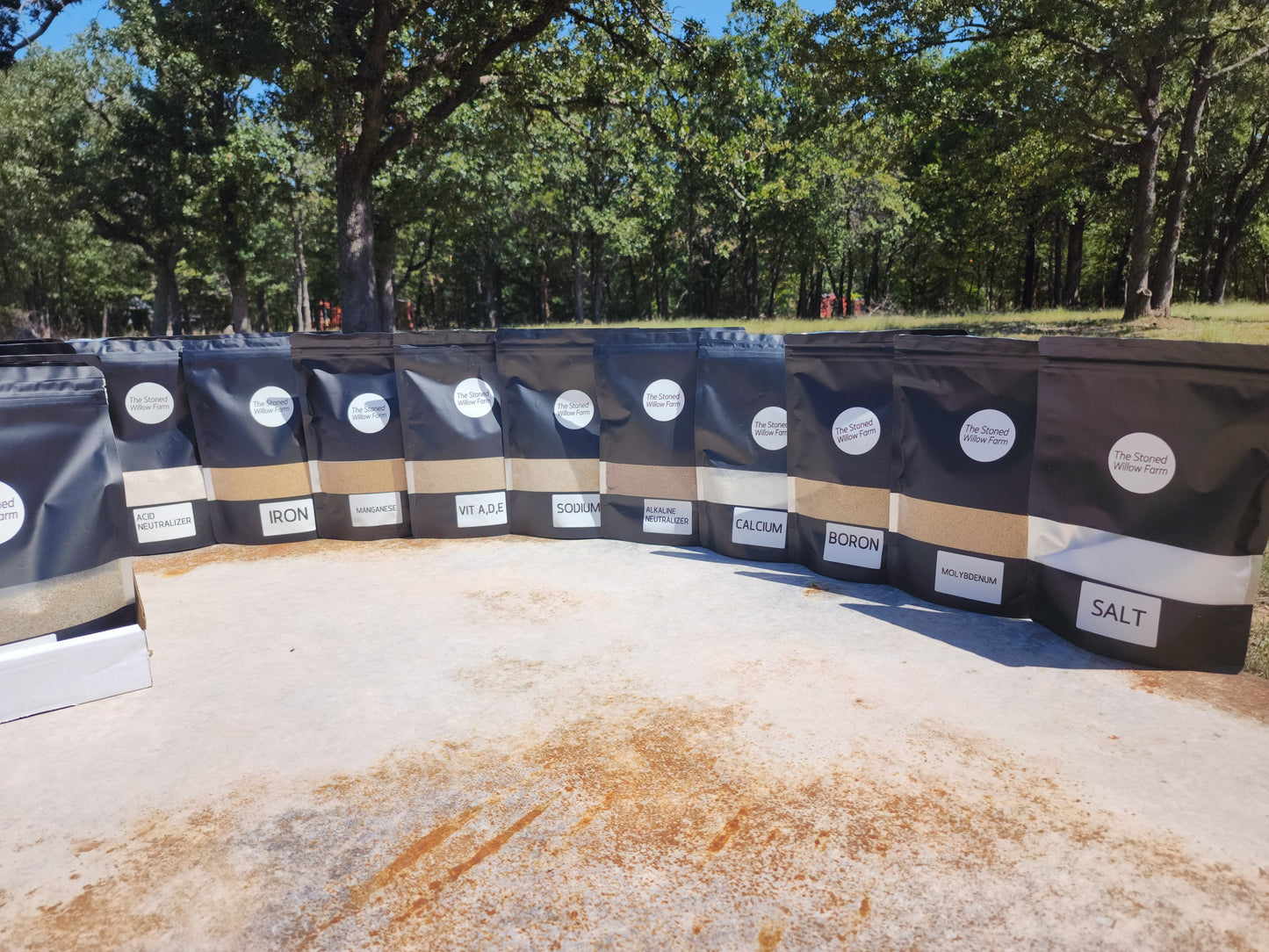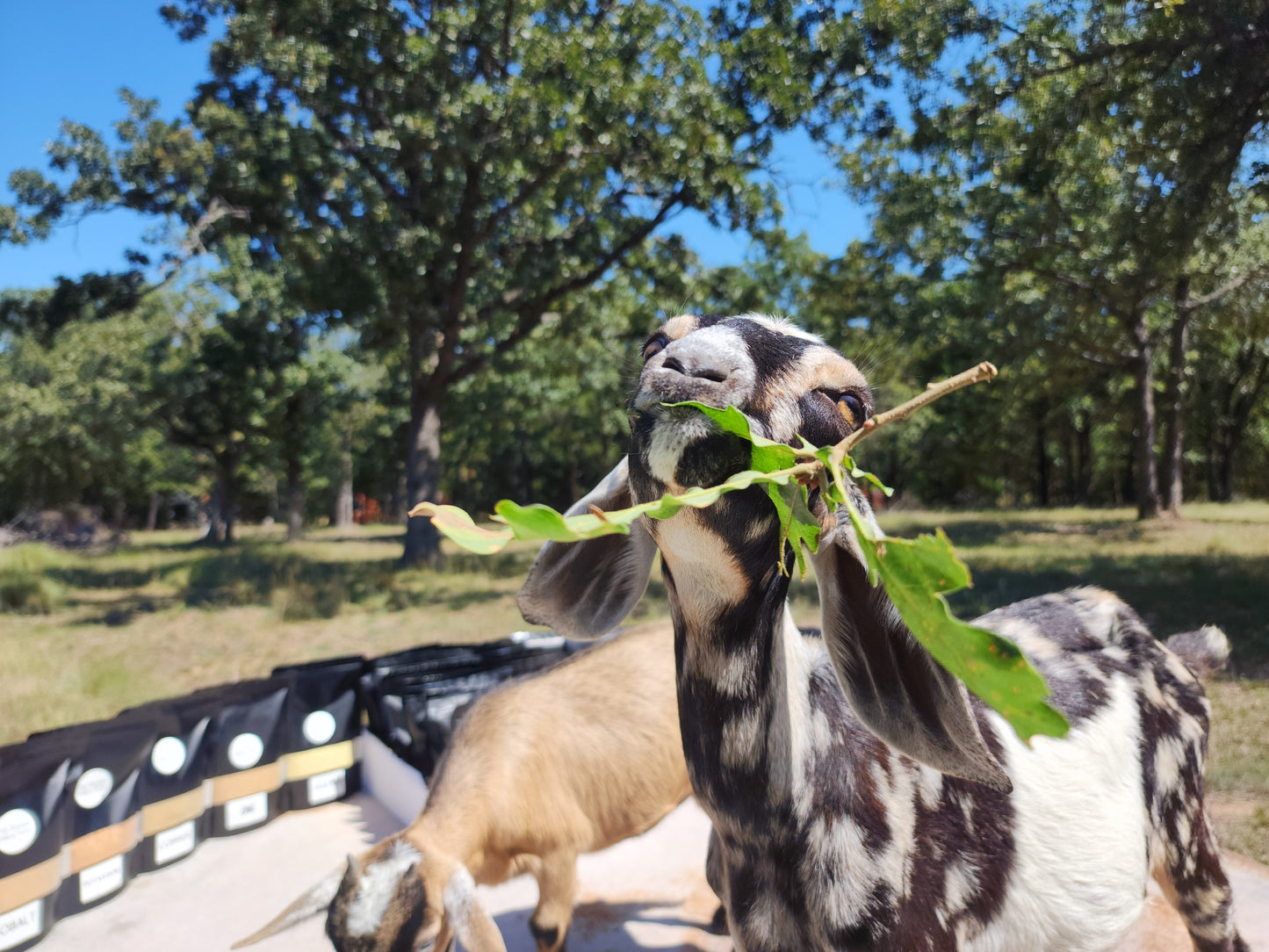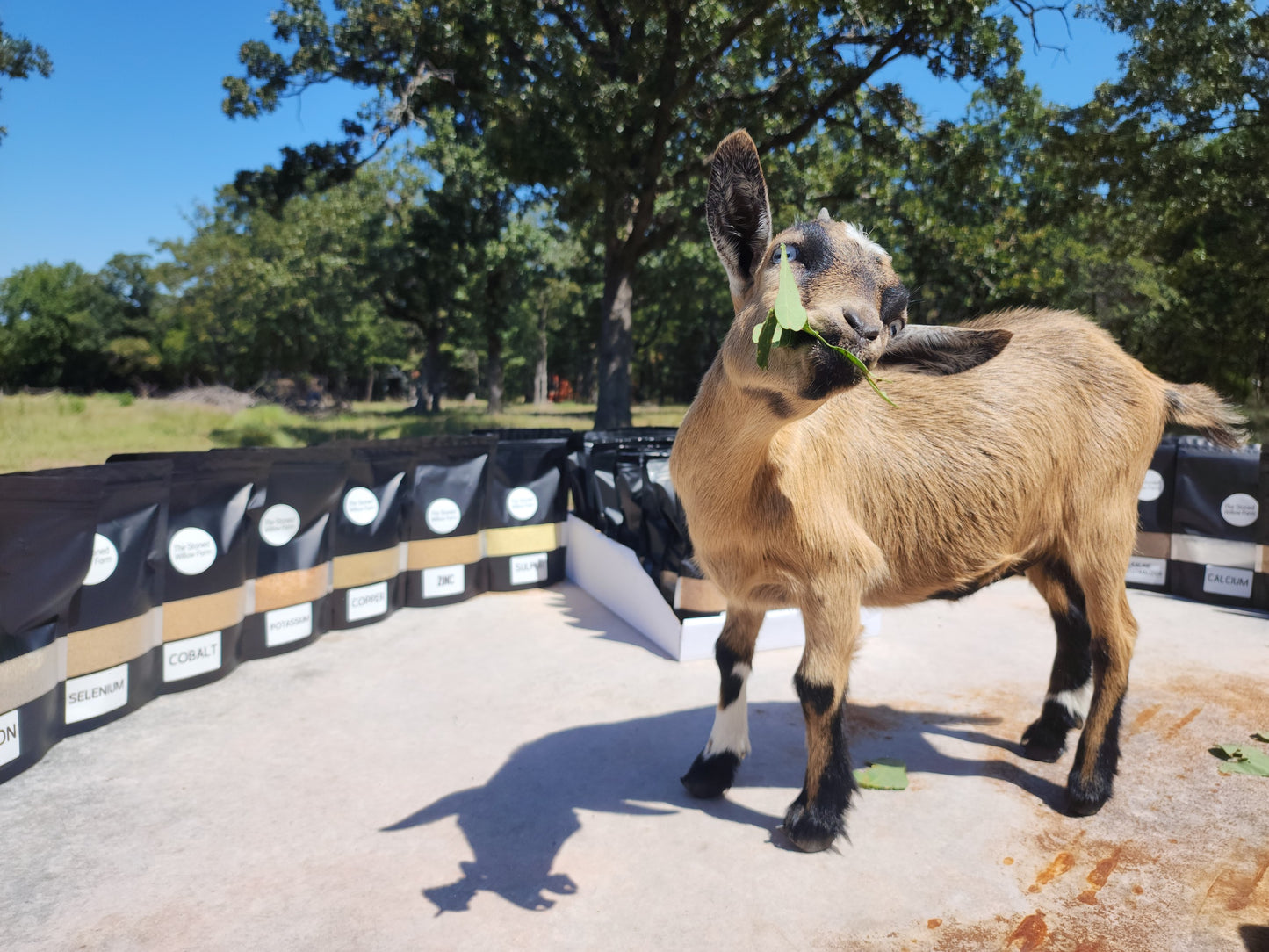
Managing Barberpole Worms in Goats Naturally: The Role of Mineral Supplementation
Barberpole worms (Haemonchus contortus) are a major threat to goat health, causing severe anemia, weakness, and even death. While chemical dewormers have traditionally been used to control these parasites, they can be potentially harmful, additionally their over-use leading to increasing resistance has led many goat owners to seek more natural methods of management. By focusing on natural pasture management strategies and mineral supplementation, you can help your goats build resilience to barberpole worms and reduce worm overloads.
1. Pasture Rotation and Grazing Strategies
One of the most effective natural methods to manage barberpole worms is rotational grazing. Since barberpole larvae stay close to the ground, goats are at higher risk of infection when grazing on short grass. Rotating pastures allows the land to "rest" and reduces the number of infectious larvae present. Grazing higher forages can also limit the larvae your goats ingest.
Additionally, letting a pasture rest for 3 months or more, or grazing other livestock like cattle (which are not affected by barberpole worms), can help break the parasite lifecycle and naturally reduce worm loads.
2. Natural Dewormers
Several natural options can support worm control without relying on chemical dewormers. Tannin-rich plants, such as sericea lespedeza, have been shown to reduce worm burdens in goats. You can introduce these plants into your goats' diet or graze them on pastures where these plants naturally grow.
Herbal dewormers and diatomaceous earth (DE) are other popular options. While evidence for their effectiveness varies, some goat owners have seen positive results when using them as part of a comprehensive natural management program.
3. The Power of Mineral Supplementation
Healthy goats are better equipped to fend off parasites, and proper mineral supplementation is key to building a strong immune response. Goats deficient in essential minerals like copper and selenium are more susceptible to heavy worm infestations.
-
Copper: Copper plays a vital role in supporting immune function and is particularly effective in helping goats resist barberpole worm infections. Copper deficiency can lead to weakened immunity, making goats more vulnerable to parasite overloads. Many goat owners use copper boluses, which release copper slowly into the goat's system and help reduce worm burdens over time.
-
Selenium: Selenium is another crucial mineral that supports immune health. Goats living in areas with selenium-poor soils may need supplemental selenium to avoid deficiency, which can leave them more prone to disease and parasites.
Providing free-choice Minerals buffet style can help prevent deficiencies and boost their overall resistance to worms. Be cautious about overdosing on copper, as it can be toxic in excess, so it's important to test your soil and consult a veterinarian to determine your goats' specific mineral needs.
4. Maintaining a Strong Immune System
In addition to minerals, a well-balanced diet that includes high-quality forage and access to fresh water is essential for keeping your goats healthy. Healthy goats are more likely to fend off parasitic infestations naturally. Consider adding herbal supplements, such as garlic or oregano, which some goat keepers use to boost immunity and provide natural worm control.
5. How Copper Kills Barberpole Worms
Copper supplementation, particularly in the form of copper oxide wire particles (COWP), plays a significant role in controlling barberpole worms (Haemonchus contortus) in goats. These parasites are known to cause severe anemia, which can be fatal in heavy infestations. Copper supplementation works in two primary ways:
-
Direct effect on worms: When copper oxide wire particles are administered to goats, they pass into the stomach, where the acidic environment dissolves the copper. This process releases copper ions, which are toxic to the barberpole worms, damaging them directly.
-
Immune support: Copper also supports the immune system, helping goats better resist infections by parasites. By strengthening the immune response, goats can naturally manage lower worm loads without relying solely on chemical dewormers.
Copper supplementation is most effective against barberpole worms but may not be as effective against other parasites like the brown stomach worm. Careful dosing is essential, as too much copper can lead to toxicity, particularly in species more sensitive to copper, such as sheep. Research indicates that using copper as part of an integrated parasite management system, like the FAMACHA method, can help reduce the use of chemical dewormers and slow down resistance development in parasite populations.
Studies from Cornell University and the USDA have shown that administering copper in dosages as low as 0.5 to 2 grams per animal can significantly reduce worm burdens in goats without negative effects on milk or overall health, as long as it is done correctly
Subscribe to our emails
And stay up to date on all your Goats health and wellness needs.
In Conclusion
Managing barberpole worms naturally is possible with the right approach. Rotational grazing, tannin-rich plants, and natural supplements like copper and selenium can strengthen your goats' defenses against parasites. By focusing on nutrition and supporting their immune systems, you can help prevent worm overloads and reduce reliance on chemical dewormers, all while keeping your goats healthier in the long run.
see "ormx" for More information and sources



